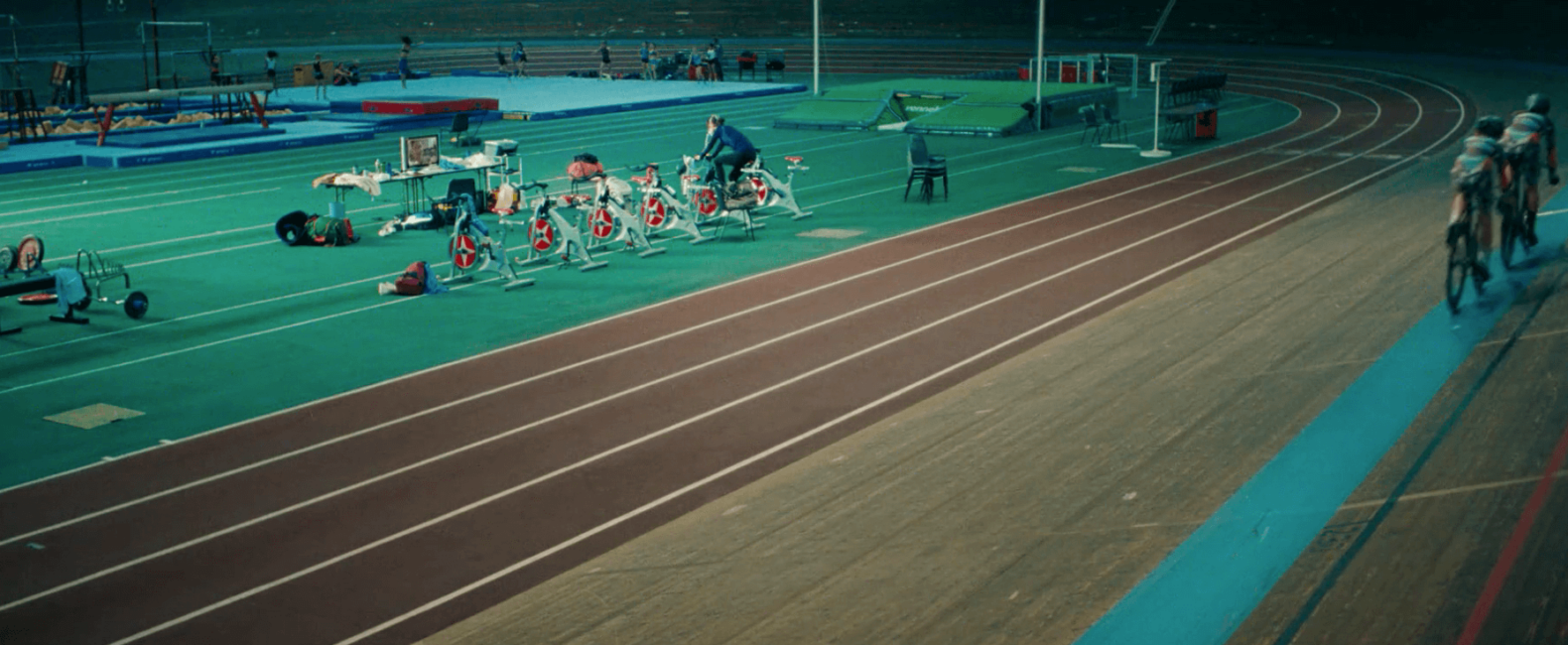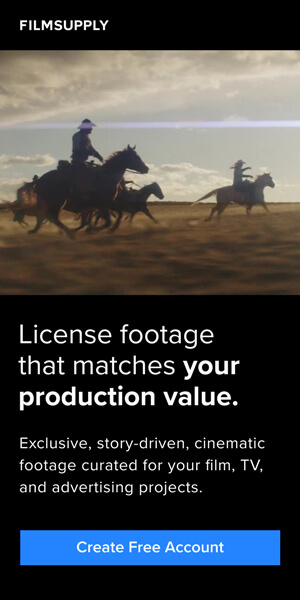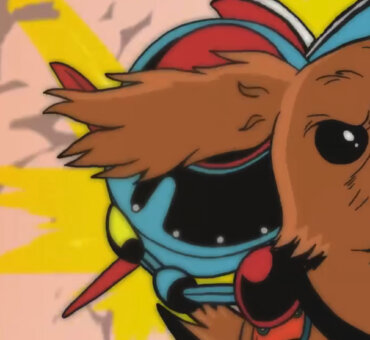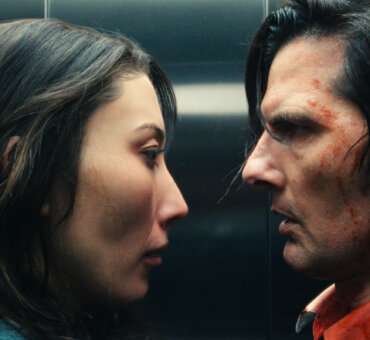There’s a moment in any creative career when you stop trying to fight the unknown and learn to embrace it. It doesn’t make things less scary, but you also lean into that fear, making peace with it. It’s a huge moment and once you get to that point, you can unlock your true creative potential.
Just take commercial editor Carla Luffe, for example. She got a headstart on this realization by learning to love the most difficult parts of her job which, in turn, makes them a little bit easier.
“It’s a love and hate relationship. It’s so intense and it’s so multilayered because it never ends. You’ll never be satisfied with what you’re doing,” she told us. “But that’s also the beauty of it, in a way. I love it, but I’m also scared of it and hate it at times.”
And this is coming from a wildly successful creative. Carla is an award-winning editor for brands like Vogue, Mercedes, Volvo, and the Sundance-winning film The Guilty, and she still has to face down her challenges when she sits down in the editing bay. Maybe it’s why she’s so successful.
Here’s editor Carla Luffe on losing yourself in your edit, loving the void, and learning to trust your footage — even when a director doesn’t.
Filmsupply: Did you immediately fall in love with editing or did it take time?
Carla Luffe: I got into editing more or less by coincidence. I was chasing, unknowingly, some sort of storytelling. I went to Paris, got a job as a personal assistant to a director there, and he started throwing editing tasks at me. It was an instant fascination, I would say. I liked to dive into this obsession with editing and I felt comfortable in that space where you could just be with that specific feeling or emotion that you wanted to convey.
It’s a love and hate relationship. It’s so intense and so multilayered because it never ends. You’ll never be satisfied with what you’re doing. But that’s also the beauty of it, in a way. I love it, but I’m also scared of it and hate it at times. It’s very fascinating being in the process of movie-making or commercials or whatever it is.
What’s it like to lose yourself in an edit?
You sit in the edit with what’s been written and what’s been shot. Without that, you’re pretty much not doing anything. You sit in this void with so much footage and then it’s your task to orchestrate everything and lose yourself in the emotional journey. It’s all about the frames. It’s down to the smallest details and facial expressions and things you didn’t really see on set. That’s what I like to investigate. I love to dwell in it.
Also, it’s a molding process. You get all the footage and see it coming together through the smallest changes that you make. You can change the entire story. In a way, you’re writing in the edit. That’s how I like to see it. You write something, then you shoot it and then you rewrite it to be the best visual film that it can be. I really think it is about losing yourself in the edit, just being in it. I like to call it my void.
You mentioned that you were “chasing storytelling” when you got into editing. What did that look like for you?
I liked the parallel universe that you can live in. As a kid, you have reality, but then you have your imagination and writing and drawing or whatever it is. I never chased becoming a director because I don’t think I have the patience for it. I think I have a different perspective on the process and on filmmaking. For me, I like the solemness of editing, pulling the strings to tell the story in the best way possible with all the footage.
What’s your favorite stage in the process?
I like the end, when you’ve been through the process of getting the film to the best place possible and you crack the code with the director and you see things are coming together. But, that’s also the scariest part because you’re close to letting it go without knowing if it’s done or if it’s ever going to be done.
But my favorite part is probably the first assembly. When I get the footage and then I have my time with it before the director comes in, that’s my favorite stage. I love the calmness and the focus that I have in the beginning when everything’s new and you haven’t seen it before and you’re just exploring. From there, it’s more of an obsession with how to make it as good as possible.
I think the purest form is in the beginning when I can mold it and then I can suggest something. From the director’s point of view, he or she could come in and say, “Oh, that’s not what I intended it to be but you’re right, it works better.” I rarely read treatments because I want the footage to speak for itself, then work backward. I always work with my intuition in the first stages. It sounds scary, but it’s nice to look at it without knowing what I’m looking for, seeing what the footage is telling me, and then go back to the treatments afterward.
Do you find that sometimes directors are trying to find their way back to the treatment?
All directors work in very different ways. It depends on how much they trust the footage and how much they see the footage for what it is and don’t really run around with a recipe. From a director’s point of view, when you see the first assembly you want to kill yourself because it’s always so brutal. Through the process of coming back and forth to the footage, the love grows and that’s what I mean by trusting the footage.
From an editor’s point of view, you don’t have that anxiety attached to it when you see it for the first time. You’re more curious about what this is going to do for you and for the film. So, you trust what is given to you, and then you see how far you can take it. With directors, everything has been prepared for a reason. And sometimes it doesn’t work. Sometimes it’s not as you expected it to be and then you have to figure it out, you have to solve it in some way. Or, it speaks to you in a different way than the treatment did or the original idea did. That’s when you trust the footage to actually bring it to a different level or to a place you didn’t expect.
Is there a certain project where things “clicked” for you as an editor?
No. And I think that’s the beauty of it. There have been a lot of moments when people have appreciated what I’ve done, but to me, it never felt like it clicked. If I could revisit any of my projects, I would. Like I said earlier, it’s never over and you can never finish an edit. I have had really good collaborations and we’ve done nice things, but it’s never over. It’s always a constant exploration in a way.
If your craft is a constant exploration, how do you go about finding your voice? Should an editor have a voice at all?
That’s a very good question because I think it’s a brutal mix of both. The beauty of editing, when it’s done elegantly, is that you don’t see. But, there are different ways of editing. There is the very, very edited approach which is beautiful in its own way. There is the very invisible editing which is beautiful in its own way. For a director or producer looking for an editor, it’s important the editor has a voice. Just as every DOP or director or sound designer or composer is different and has a tonality, every editor has a voice as well. It’s such an important role in the process that it’s being cast just like every other part. It’s important for the director to know that the editor can actually achieve what he or she wants to achieve and match the vision with the project.
You’ve mentioned a few times that an edit is never done. Is that the worst or best part of the job for you?
It’s the beautiful, scary part of editing. Even when you’re done editing and you wrap it up and you send it out and you’re done editing, the film lives on. It never ends. You could look at the film, open up the edit any day and start editing again. I could look at any edit I’ve done and I would probably want to fix stuff.
I think the art of it is also knowing when it’s finished. The most crucial thing is to know when to stop, which is really hard. In a world where we do a lot of commercials and there are a lot of deadlines and everybody’s on your back to deliver, that moment kind of disappears because you don’t really have time to consider it. It’s such a fine and delicate thing because you can actually just continue forever. Knowing when to stop is the hardest thing, when to let it go. I’m not sure if I’ll ever be good at it, but I also love it. I’m not scared of it. That’s what I’m trying to say.Read our conversation with commercial editor Ellie Johnson on using sleight of hand and loving a project’s process.






